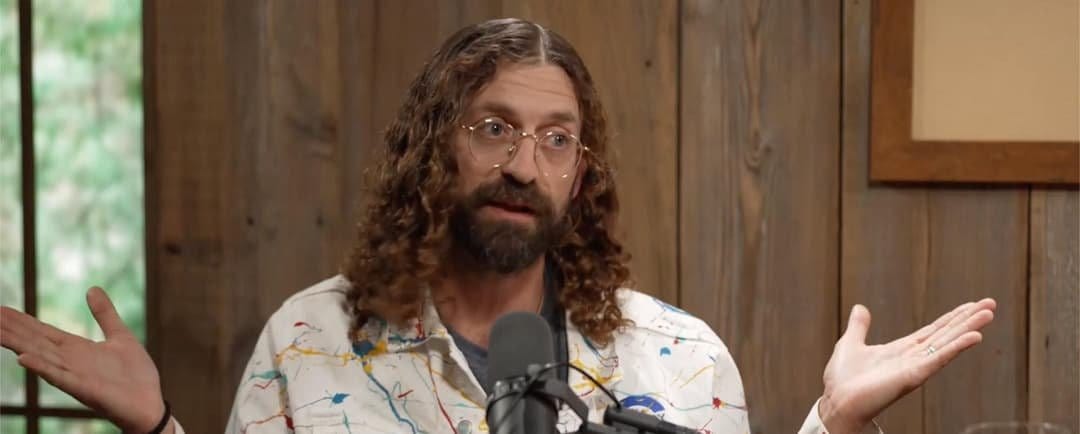Shadow Play North of the Border
Tucker Carlson’s Canadian Gambit
Tucker Carlson strives to stay relevant by positioning himself as the orchestrator of chaos, shaping a narrative that extends into Canada.
Tucker Carlson’s recent interview with Prime Minister Justin Trudeau's half-sibling, Kyle Kemper, was driven by a particular agenda. Carlson, who excels at stirring up controversy, isn't simply offering distant critiques of Canadian policies; he's actively inserting himself into the Canadian political landscape, weaving conspiracy theories and crafting a story that serves his purposes. The question is, what are Tucker Carlson's intentions for Canada? It is essential and empowering for Canadians to critically examine his motives and assertions to understand the potential impact on Canadian politics.
During an episode of The Tucker Carlson Encounter that blurred the lines between familial drama and political spectacle, Carlson welcomed Kemper, a figure whose views diverge from the conventional path as markedly as the compass needle deviates north. An outspoken detractor of Trudeau's pandemic response, Kemper seized the platform to voice his dissent against vaccine mandates and perceived governmental overreach. He painted a portrait of Trudeau not as a leader but as a marionette, with strings pulled by the shadowy hands of pharmaceutical magnates and international conspiracies.
Kyle Kemper, The Tucker Carlson Encounter
Ever the cunning opportunist, Carlson seized upon these declarations, deftly knitting them into a grander tapestry of despotic governance. If one were under the impression that this was a crusade born of genuine concern for the Canadian populace, it would be prudent to think again. This is Carlson in his element, fanning the flames of fear and division with the skill of a seasoned pyrotechnician.
One might ponder why Tucker Carlson, who once professed indifference to Canadian affairs, has suddenly taken such a keen interest in the nation beyond the northern frontier. The answer lies in the expansion of his brand of orchestrated chaos. Carlson's intentions are transparent—to transplant his divisive political brand. By casting Trudeau as an autocrat, he aims to chip away at the bedrock of Canadians' trust in their government. It is a strategy lifted straight from his American playbook: cultivate fear, breed distrust, and sow discord.
Kemper's affiliation with the wellness community introduces an additional layer to this intricate web. With its preference for alternative narratives and anti-establishment sentiment, the wellness sphere has become fertile ground for conspiracy theories—Kemper's repudiation of vaccines and advocacy for "medical freedom" dovetail seamlessly with Carlson's narrative.
Carlson's audience, which thrives on conspiracy theories and a deep-rooted mistrust of authority, eagerly embraced his narrative. Carlson taps into a reservoir of individuals predisposed to doubt governmental actions by aligning with Kemper. It's a convenient alliance that allows both men to advance their agendas, all under the guise of 'free thought' and 'personal liberty.'
The potential impact of Carlson's meddling in Canadian politics is not to be underestimated. By painting Trudeau as a dictator, Carlson is fanning the flames of political unrest in Canada. This could strain the diplomatic ties between the U.S. and Canada, especially if these narratives gain traction. More worryingly, it undermines the public's trust in Canadian institutions. The more people believe that their government has sinister intentions, the harder it becomes to govern effectively.
Canadians must recognize Carlson's tactics for what they are: a calculated effort to disrupt their political landscape. This is not a fight for freedom or personal liberty; it's an export of a political style that thrives in chaos and distrust. Carlson's track record in the U.S. speaks volumes—he is more of a creator of outrage than a seeker of truth.
Given Carlson's history of espousing views often echoing Russian interests, it is worth considering whether a more significant game is at play. Carlson has echoed the Kremlin's positions, from downplaying Russian electoral interference to criticizing NATO's expansion. His show has sometimes served as a platform for narratives undermining Western alliances and democratic institutions.
Is it too speculative to surmise that Carlson's foray into Canadian affairs might align with broader geopolitical stratagems? Russia has long endeavored to destabilize Western democracies by exploiting societal rifts and magnifying marginal voices. Carlson's efforts to foment distrust and dissent in Canada could, wittingly or unwittingly, advance those objectives. By depicting Trudeau as a pawn of global elites, Carlson parrots a narrative that is all too familiar to Russian efforts aimed at discrediting democratic leaders and institutions.
While it may be tempting to dismiss Carlson's theatrics, Canadians must remain vigilant. His methods may border on ludicrous, but the potential outcomes are anything but trivial. Carlson's modus operandi is a blend of sensationalism and paranoia, masquerading as journalism. It is imperative to expose these tactics for what they are and to ensure that Canada remains immune to the divisive politics that have afflicted the U.S. By staying informed, actively participating in the political discourse, and challenging these narratives, we can help keep the spectacle from taking center stage.
Tucker Carlson's foray into Canadian politics is not a benign endeavor to assist Canadians but rather an expansion of his influence and a catalyst for discord. By scrutinizing his motives and the dubious claims propagated by figures like Kemper, Canadians can bolster democracy against this insidious form of media manipulation. The potential peril to Canadian democracy is not a distant prospect but a pressing and imminent hazard.
Stay informed, and prevent the spectacle from dominating the discourse.



